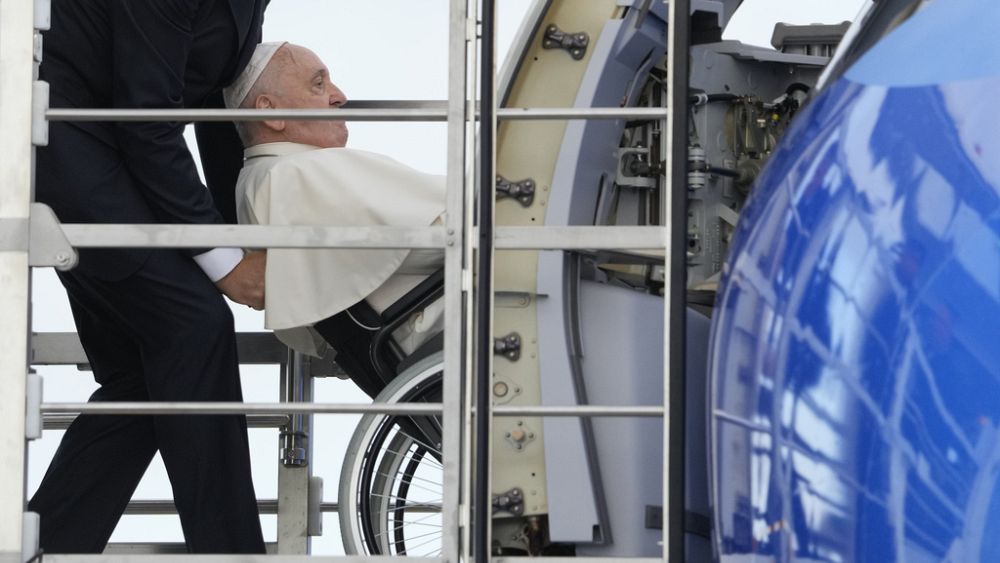
Francis is widely expected to meet in private with abuse survivors this week and could well refer to the problem in his public remarks, as he has done during past foreign trips.
More than one million young people from around the world were expected to attend the gathering in Lisbon, which takes place over several days. Busloads of pilgrims started arriving before Tuesday despite temperatures forecast to hit 35 degrees Celsius by the weekend’s final papal Mass.
“Stay hydrated!” read a slogan promoted by Portugal’s General Directorate for Health for the event. Portuguese Prime Minister Antonio Costa advised youth day volunteers Monday to keep with them “a lot of water, because it’s very hot, and a hat.”
Cardinal-elect Americo Aguiar, a Lisbon bishop who is organising the festival, said two years of COVID-19 lockdowns made this year’s edition of World Youth Day unique. He said it was an important encounter for Catholic youths, especially with war raging now in Europe and economic uncertainties around the globe.
“The pope always says this event is the joy and the possibility of coming together, of the culture of coming together,” Aguiar said in an interview with Associated Press. “After such limitations and difficulties, young people from all over the world will be able to meet again, with a certain freedom.”
Francis is scheduled to spend the morning meeting with Portuguese officials at the Belem National Palace, the official presidential residence west of Lisbon, from where Portugal’s maritime explorers of the 15th and 16th centuries set sail.
In the afternoon, Francis makes his way to the 16th-century Jeronimos Monastery and church, arguably Portugal’s greatest monument. There, he is set to meet with the Portuguese Catholic hierarchy, which recently began the process of reckoning with its legacy of clergy sexual abuse.
Portuguese bishops were widely criticised for their initial response to the findings of an independent commission, which reported in February that at least 4,815 boys and girls were abused in the country since 1950, most of them ages 10-14.
The bishops long insisted there were only a handful of cases, and they initially baulked at suspending active members of the clergy who were named in the commission’s report. They also flip-flopped on paying reparations to victims, at first insisting they would only pay if ordered to by court rulings.
The Portuguese Catholic Church also promised in March to build a memorial to victims that would be unveiled during World Youth Day, but organisers scrapped the plan a few weeks ago.

